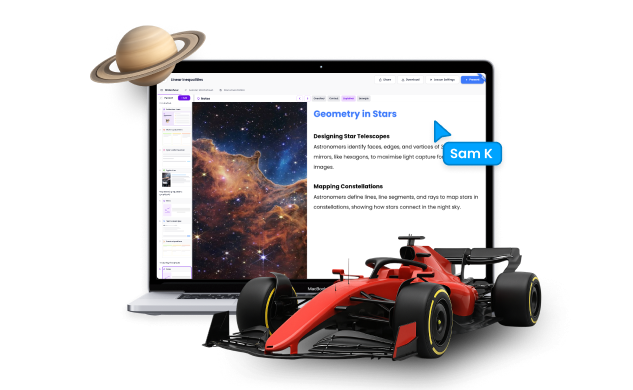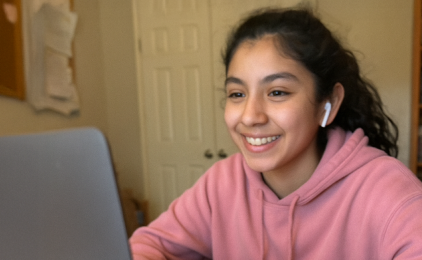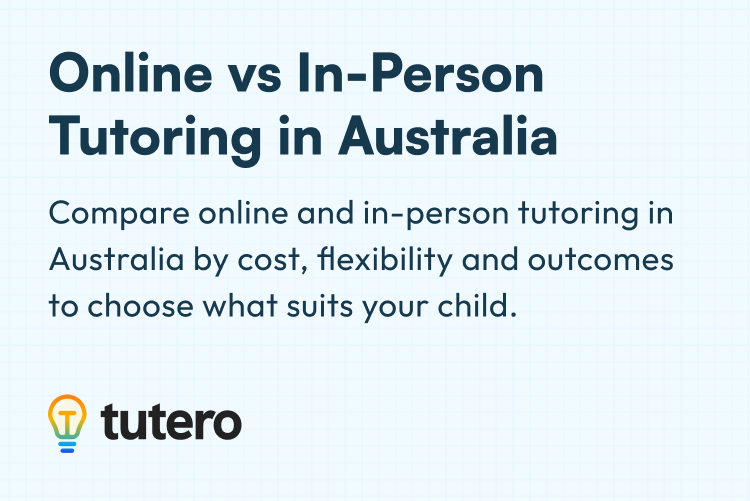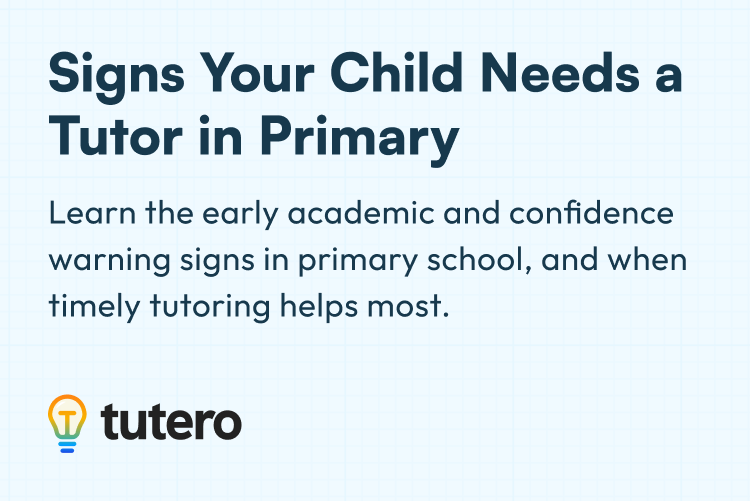Preparing for VCE exams requires a combination of practical study strategies, time management, and attention to your physical and mental well-being. Below are enhanced tips for preparing for VCE exams, incorporating study techniques, health tips, and expert advice to help you succeed.
Create a Detailed Study Plan Early
A structured study plan is your roadmap to success. Start by identifying your strengths and weaknesses in each subject, and allocate more time to areas where you feel less confident. To stay organised, consider dividing your weekdays into manageable study sessions. For example, you could dedicate two hours after school to revision, focusing on more complex subjects such as math methods or physics on Mondays and Wednesdays. Subjects where you're more confident can be tackled on other days, such as Tuesdays and Thursdays. Fridays can serve as review days to summarise the week’s study content.
On weekends, allocate longer blocks for intensive study. Saturday could be dedicated to practising exams for a primary subject, while Sunday can be used to revise notes, complete additional past papers, and reflect on areas needing improvement. Regular review sessions and progress evaluations will ensure you cover all subjects over time without burning out.
.avif)
Understand the Marking Criteria for Past VCE Exams
Practising past VCE exams is critical to exam preparation, but understanding the marking criteria is equally important. Reviewing examiner reports and paying attention to the marking schemes can provide insight into what examiners expect from high-scoring responses. It is not just about completing as many practice exams as possible—it's about learning how to structure your answers and meet the criteria for clarity and depth.
For example, compare your practice answers to high-scoring responses to identify gaps in your approach. Quality should always be prioritised over quantity. Aim for a deep understanding of the subject matter, focusing on key concepts and how to express them concisely. Marking your practice papers using official VCAA marking schemes is a valuable exercise that can help you identify areas for improvement. This process will also familiarise you with how your answers might be graded, giving you an edge in the exam.
Utilise Online Tutoring to Address Weaknesses
If you’re struggling with specific topics, personalised tutoring can offer targeted support to help you overcome these challenges. Online tutoring services can provide tailored assistance for complex subjects like English, Chemistry, or Maths Methods. Personalised tutoring allows you to focus on problem areas more effectively, with a tutor adapting their teaching style to suit your learning pace.
For instance, one VCE student who struggled with chemistry found that working with a tutor helped clarify complex concepts and provided strategies for approaching exam questions more confidently. Tutors can break down complex topics into manageable parts and provide specific feedback that improves your exam technique. Moreover, personalised tutoring sessions can be designed to refine your skills in essay writing or complex problem-solving, giving you the confidence you need in historically tricky subjects.

Prioritise Physical and Mental Health
While effective study techniques are essential, maintaining physical and mental health during exam preparation is equally crucial. Incorporating short, daily exercises like brisk walking, yoga, or stretching can significantly improve focus and cognitive function. Staying hydrated and getting 7-9 hours of sleep each night will also help with memory retention and concentration.
On the mental health side, mindfulness practices such as meditation or deep breathing exercises can help manage stress levels. Dedicating 5-10 minutes daily to mindfulness can significantly improve your overall calm and focus. Breaking tasks into smaller chunks and setting achievable daily goals can prevent overwhelming feelings. Also, don’t hesitate to contact friends, family, or support groups when stressed or anxious. Connecting with others is a great way to share feelings and alleviate pressure.
Regular physical activity and a balanced routine reduce stress and boost your mental clarity, making it easier to tackle difficult subjects and retain information more effectively.\
Time Management on Exam Day
Managing your time effectively on the exam day is just as important as your preparation. Start by skimming through the exam paper during the first five minutes to understand the questions. Identify which ones you can tackle first based on your strengths. This approach helps build momentum and gives you confidence for the rest of the exam.
Aim to spend at most one minute on multiple-choice questions. This prevents you from dwelling too long on any question, giving you more time for essay-based questions, which require more planning. Before writing an essay, spend a few minutes drafting a quick outline of your main points. This simple step will keep your thoughts organised and ensure your answer remains focused and coherent.
Always leave the last 5-10 minutes of the exam to review your answers for any mistakes or missed details. Prioritising questions that carry more marks is an intelligent approach, but ensure that you don’t spend too long on any one section at the expense of others.
Revise with Study Groups
Studying with peers can provide different perspectives on challenging topics and help reinforce your learning. Organising study groups where you can quiz each other, solve problems together, or share notes and past papers can effectively stay motivated and deepen your understanding of the material.
For example, a group of VCE students shared how working through Biology past papers together helped them retain information more effectively. Discussing concepts with peers and hearing different explanations clarified their understanding of critical topics.
If in-person study groups aren’t an option, consider using virtual platforms like Zoom or Google Meet to connect with your classmates. This allows for collaborative learning while staying within the comfort of your own home.
.avif)
Diversify Study Techniques
Incorporating various study techniques can keep your learning engaging and cater to different learning styles. In addition to traditional study methods, try integrating educational podcasts, YouTube videos, and interactive apps into your routine. Listening to podcasts or watching videos focusing on your VCE subjects, such as Biology or Economics, can provide new insights and fresh perspectives.
Using interactive apps like Quizlet or Khan Academy can also be a fun way to significantly reinforce what you've learned when revising complex topics. One highly effective technique is teaching others—try explaining complex concepts to a peer or even aloud to yourself. This method forces you to process information deeply, helping you retain it better.
Conclusion
Preparing for VCE exams can be challenging, but by following a well-structured study plan, understanding the marking criteria, and seeking personalised help when necessary, you can confidently approach the exams. Paying attention to your physical and mental health and managing your time effectively on exam day will keep you focused and prevent burnout. Don’t hesitate to explore different study techniques and collaborate with others. It’s not just about how much you study but how effectively you use that time. Best of luck with your VCE exams!
Preparing for VCE exams requires a combination of practical study strategies, time management, and attention to your physical and mental well-being. Below are enhanced tips for preparing for VCE exams, incorporating study techniques, health tips, and expert advice to help you succeed.
Create a Detailed Study Plan Early
A structured study plan is your roadmap to success. Start by identifying your strengths and weaknesses in each subject, and allocate more time to areas where you feel less confident. To stay organised, consider dividing your weekdays into manageable study sessions. For example, you could dedicate two hours after school to revision, focusing on more complex subjects such as math methods or physics on Mondays and Wednesdays. Subjects where you're more confident can be tackled on other days, such as Tuesdays and Thursdays. Fridays can serve as review days to summarise the week’s study content.
On weekends, allocate longer blocks for intensive study. Saturday could be dedicated to practising exams for a primary subject, while Sunday can be used to revise notes, complete additional past papers, and reflect on areas needing improvement. Regular review sessions and progress evaluations will ensure you cover all subjects over time without burning out.
.avif)
Understand the Marking Criteria for Past VCE Exams
Practising past VCE exams is critical to exam preparation, but understanding the marking criteria is equally important. Reviewing examiner reports and paying attention to the marking schemes can provide insight into what examiners expect from high-scoring responses. It is not just about completing as many practice exams as possible—it's about learning how to structure your answers and meet the criteria for clarity and depth.
For example, compare your practice answers to high-scoring responses to identify gaps in your approach. Quality should always be prioritised over quantity. Aim for a deep understanding of the subject matter, focusing on key concepts and how to express them concisely. Marking your practice papers using official VCAA marking schemes is a valuable exercise that can help you identify areas for improvement. This process will also familiarise you with how your answers might be graded, giving you an edge in the exam.
Utilise Online Tutoring to Address Weaknesses
If you’re struggling with specific topics, personalised tutoring can offer targeted support to help you overcome these challenges. Online tutoring services can provide tailored assistance for complex subjects like English, Chemistry, or Maths Methods. Personalised tutoring allows you to focus on problem areas more effectively, with a tutor adapting their teaching style to suit your learning pace.
For instance, one VCE student who struggled with chemistry found that working with a tutor helped clarify complex concepts and provided strategies for approaching exam questions more confidently. Tutors can break down complex topics into manageable parts and provide specific feedback that improves your exam technique. Moreover, personalised tutoring sessions can be designed to refine your skills in essay writing or complex problem-solving, giving you the confidence you need in historically tricky subjects.

Prioritise Physical and Mental Health
While effective study techniques are essential, maintaining physical and mental health during exam preparation is equally crucial. Incorporating short, daily exercises like brisk walking, yoga, or stretching can significantly improve focus and cognitive function. Staying hydrated and getting 7-9 hours of sleep each night will also help with memory retention and concentration.
On the mental health side, mindfulness practices such as meditation or deep breathing exercises can help manage stress levels. Dedicating 5-10 minutes daily to mindfulness can significantly improve your overall calm and focus. Breaking tasks into smaller chunks and setting achievable daily goals can prevent overwhelming feelings. Also, don’t hesitate to contact friends, family, or support groups when stressed or anxious. Connecting with others is a great way to share feelings and alleviate pressure.
Regular physical activity and a balanced routine reduce stress and boost your mental clarity, making it easier to tackle difficult subjects and retain information more effectively.\
Time Management on Exam Day
Managing your time effectively on the exam day is just as important as your preparation. Start by skimming through the exam paper during the first five minutes to understand the questions. Identify which ones you can tackle first based on your strengths. This approach helps build momentum and gives you confidence for the rest of the exam.
Aim to spend at most one minute on multiple-choice questions. This prevents you from dwelling too long on any question, giving you more time for essay-based questions, which require more planning. Before writing an essay, spend a few minutes drafting a quick outline of your main points. This simple step will keep your thoughts organised and ensure your answer remains focused and coherent.
Always leave the last 5-10 minutes of the exam to review your answers for any mistakes or missed details. Prioritising questions that carry more marks is an intelligent approach, but ensure that you don’t spend too long on any one section at the expense of others.
Revise with Study Groups
Studying with peers can provide different perspectives on challenging topics and help reinforce your learning. Organising study groups where you can quiz each other, solve problems together, or share notes and past papers can effectively stay motivated and deepen your understanding of the material.
For example, a group of VCE students shared how working through Biology past papers together helped them retain information more effectively. Discussing concepts with peers and hearing different explanations clarified their understanding of critical topics.
If in-person study groups aren’t an option, consider using virtual platforms like Zoom or Google Meet to connect with your classmates. This allows for collaborative learning while staying within the comfort of your own home.
.avif)
Diversify Study Techniques
Incorporating various study techniques can keep your learning engaging and cater to different learning styles. In addition to traditional study methods, try integrating educational podcasts, YouTube videos, and interactive apps into your routine. Listening to podcasts or watching videos focusing on your VCE subjects, such as Biology or Economics, can provide new insights and fresh perspectives.
Using interactive apps like Quizlet or Khan Academy can also be a fun way to significantly reinforce what you've learned when revising complex topics. One highly effective technique is teaching others—try explaining complex concepts to a peer or even aloud to yourself. This method forces you to process information deeply, helping you retain it better.
Conclusion
Preparing for VCE exams can be challenging, but by following a well-structured study plan, understanding the marking criteria, and seeking personalised help when necessary, you can confidently approach the exams. Paying attention to your physical and mental health and managing your time effectively on exam day will keep you focused and prevent burnout. Don’t hesitate to explore different study techniques and collaborate with others. It’s not just about how much you study but how effectively you use that time. Best of luck with your VCE exams!
FAQ
.svg)
.svg)
Online maths tutoring at Tutero is catering to students of all year levels. We offer programs tailored to the unique learning curves of each age group.
.svg)
.svg)
We also have expert NAPLAN and ATAR subject tutors, ensuring students are well-equipped for these pivotal assessments.
.svg)
.svg)
We recommend at least two to three session per week for consistent progress. However, this can vary based on your child's needs and goals.
.svg)
.svg)
Our platform uses advanced security protocols to ensure the safety and privacy of all our online sessions.
.svg)
.svg)
Parents are welcome to observe sessions. We believe in a collaborative approach to education.
.svg)
.svg)
We provide regular progress reports and assessments to track your child’s academic development.
.svg)
.svg)
Yes, we prioritise the student-tutor relationship and can arrange a change if the need arises.
.svg)
.svg)
Yes, we offer a range of resources and materials, including interactive exercises and practice worksheets.
Preparing for VCE exams requires a combination of practical study strategies, time management, and attention to your physical and mental well-being. Below are enhanced tips for preparing for VCE exams, incorporating study techniques, health tips, and expert advice to help you succeed.
Create a Detailed Study Plan Early
A structured study plan is your roadmap to success. Start by identifying your strengths and weaknesses in each subject, and allocate more time to areas where you feel less confident. To stay organised, consider dividing your weekdays into manageable study sessions. For example, you could dedicate two hours after school to revision, focusing on more complex subjects such as math methods or physics on Mondays and Wednesdays. Subjects where you're more confident can be tackled on other days, such as Tuesdays and Thursdays. Fridays can serve as review days to summarise the week’s study content.
On weekends, allocate longer blocks for intensive study. Saturday could be dedicated to practising exams for a primary subject, while Sunday can be used to revise notes, complete additional past papers, and reflect on areas needing improvement. Regular review sessions and progress evaluations will ensure you cover all subjects over time without burning out.
.avif)
Understand the Marking Criteria for Past VCE Exams
Practising past VCE exams is critical to exam preparation, but understanding the marking criteria is equally important. Reviewing examiner reports and paying attention to the marking schemes can provide insight into what examiners expect from high-scoring responses. It is not just about completing as many practice exams as possible—it's about learning how to structure your answers and meet the criteria for clarity and depth.
For example, compare your practice answers to high-scoring responses to identify gaps in your approach. Quality should always be prioritised over quantity. Aim for a deep understanding of the subject matter, focusing on key concepts and how to express them concisely. Marking your practice papers using official VCAA marking schemes is a valuable exercise that can help you identify areas for improvement. This process will also familiarise you with how your answers might be graded, giving you an edge in the exam.
Utilise Online Tutoring to Address Weaknesses
If you’re struggling with specific topics, personalised tutoring can offer targeted support to help you overcome these challenges. Online tutoring services can provide tailored assistance for complex subjects like English, Chemistry, or Maths Methods. Personalised tutoring allows you to focus on problem areas more effectively, with a tutor adapting their teaching style to suit your learning pace.
For instance, one VCE student who struggled with chemistry found that working with a tutor helped clarify complex concepts and provided strategies for approaching exam questions more confidently. Tutors can break down complex topics into manageable parts and provide specific feedback that improves your exam technique. Moreover, personalised tutoring sessions can be designed to refine your skills in essay writing or complex problem-solving, giving you the confidence you need in historically tricky subjects.

Prioritise Physical and Mental Health
While effective study techniques are essential, maintaining physical and mental health during exam preparation is equally crucial. Incorporating short, daily exercises like brisk walking, yoga, or stretching can significantly improve focus and cognitive function. Staying hydrated and getting 7-9 hours of sleep each night will also help with memory retention and concentration.
On the mental health side, mindfulness practices such as meditation or deep breathing exercises can help manage stress levels. Dedicating 5-10 minutes daily to mindfulness can significantly improve your overall calm and focus. Breaking tasks into smaller chunks and setting achievable daily goals can prevent overwhelming feelings. Also, don’t hesitate to contact friends, family, or support groups when stressed or anxious. Connecting with others is a great way to share feelings and alleviate pressure.
Regular physical activity and a balanced routine reduce stress and boost your mental clarity, making it easier to tackle difficult subjects and retain information more effectively.\
Time Management on Exam Day
Managing your time effectively on the exam day is just as important as your preparation. Start by skimming through the exam paper during the first five minutes to understand the questions. Identify which ones you can tackle first based on your strengths. This approach helps build momentum and gives you confidence for the rest of the exam.
Aim to spend at most one minute on multiple-choice questions. This prevents you from dwelling too long on any question, giving you more time for essay-based questions, which require more planning. Before writing an essay, spend a few minutes drafting a quick outline of your main points. This simple step will keep your thoughts organised and ensure your answer remains focused and coherent.
Always leave the last 5-10 minutes of the exam to review your answers for any mistakes or missed details. Prioritising questions that carry more marks is an intelligent approach, but ensure that you don’t spend too long on any one section at the expense of others.
Revise with Study Groups
Studying with peers can provide different perspectives on challenging topics and help reinforce your learning. Organising study groups where you can quiz each other, solve problems together, or share notes and past papers can effectively stay motivated and deepen your understanding of the material.
For example, a group of VCE students shared how working through Biology past papers together helped them retain information more effectively. Discussing concepts with peers and hearing different explanations clarified their understanding of critical topics.
If in-person study groups aren’t an option, consider using virtual platforms like Zoom or Google Meet to connect with your classmates. This allows for collaborative learning while staying within the comfort of your own home.
.avif)
Diversify Study Techniques
Incorporating various study techniques can keep your learning engaging and cater to different learning styles. In addition to traditional study methods, try integrating educational podcasts, YouTube videos, and interactive apps into your routine. Listening to podcasts or watching videos focusing on your VCE subjects, such as Biology or Economics, can provide new insights and fresh perspectives.
Using interactive apps like Quizlet or Khan Academy can also be a fun way to significantly reinforce what you've learned when revising complex topics. One highly effective technique is teaching others—try explaining complex concepts to a peer or even aloud to yourself. This method forces you to process information deeply, helping you retain it better.
Conclusion
Preparing for VCE exams can be challenging, but by following a well-structured study plan, understanding the marking criteria, and seeking personalised help when necessary, you can confidently approach the exams. Paying attention to your physical and mental health and managing your time effectively on exam day will keep you focused and prevent burnout. Don’t hesitate to explore different study techniques and collaborate with others. It’s not just about how much you study but how effectively you use that time. Best of luck with your VCE exams!
Lorem ipsum dolor sit amet, consectetur adipiscing elit. Suspendisse varius enim in eros elementum tristique. Duis cursus, mi quis viverra ornare, eros dolor interdum nulla, ut commodo diam libero vitae erat. Aenean faucibus nibh et justo cursus id rutrum lorem imperdiet. Nunc ut sem vitae risus tristique posuere.
Lorem ipsum dolor sit amet, consectetur adipiscing elit. Suspendisse varius enim in eros elementum tristique. Duis cursus, mi quis viverra ornare, eros dolor interdum nulla, ut commodo diam libero vitae erat. Aenean faucibus nibh et justo cursus id rutrum lorem imperdiet. Nunc ut sem vitae risus tristique posuere.


Preparing for VCE exams requires a combination of practical study strategies, time management, and attention to your physical and mental well-being. Below are enhanced tips for preparing for VCE exams, incorporating study techniques, health tips, and expert advice to help you succeed.
Create a Detailed Study Plan Early
A structured study plan is your roadmap to success. Start by identifying your strengths and weaknesses in each subject, and allocate more time to areas where you feel less confident. To stay organised, consider dividing your weekdays into manageable study sessions. For example, you could dedicate two hours after school to revision, focusing on more complex subjects such as math methods or physics on Mondays and Wednesdays. Subjects where you're more confident can be tackled on other days, such as Tuesdays and Thursdays. Fridays can serve as review days to summarise the week’s study content.
On weekends, allocate longer blocks for intensive study. Saturday could be dedicated to practising exams for a primary subject, while Sunday can be used to revise notes, complete additional past papers, and reflect on areas needing improvement. Regular review sessions and progress evaluations will ensure you cover all subjects over time without burning out.
.avif)
Understand the Marking Criteria for Past VCE Exams
Practising past VCE exams is critical to exam preparation, but understanding the marking criteria is equally important. Reviewing examiner reports and paying attention to the marking schemes can provide insight into what examiners expect from high-scoring responses. It is not just about completing as many practice exams as possible—it's about learning how to structure your answers and meet the criteria for clarity and depth.
For example, compare your practice answers to high-scoring responses to identify gaps in your approach. Quality should always be prioritised over quantity. Aim for a deep understanding of the subject matter, focusing on key concepts and how to express them concisely. Marking your practice papers using official VCAA marking schemes is a valuable exercise that can help you identify areas for improvement. This process will also familiarise you with how your answers might be graded, giving you an edge in the exam.
Utilise Online Tutoring to Address Weaknesses
If you’re struggling with specific topics, personalised tutoring can offer targeted support to help you overcome these challenges. Online tutoring services can provide tailored assistance for complex subjects like English, Chemistry, or Maths Methods. Personalised tutoring allows you to focus on problem areas more effectively, with a tutor adapting their teaching style to suit your learning pace.
For instance, one VCE student who struggled with chemistry found that working with a tutor helped clarify complex concepts and provided strategies for approaching exam questions more confidently. Tutors can break down complex topics into manageable parts and provide specific feedback that improves your exam technique. Moreover, personalised tutoring sessions can be designed to refine your skills in essay writing or complex problem-solving, giving you the confidence you need in historically tricky subjects.

Prioritise Physical and Mental Health
While effective study techniques are essential, maintaining physical and mental health during exam preparation is equally crucial. Incorporating short, daily exercises like brisk walking, yoga, or stretching can significantly improve focus and cognitive function. Staying hydrated and getting 7-9 hours of sleep each night will also help with memory retention and concentration.
On the mental health side, mindfulness practices such as meditation or deep breathing exercises can help manage stress levels. Dedicating 5-10 minutes daily to mindfulness can significantly improve your overall calm and focus. Breaking tasks into smaller chunks and setting achievable daily goals can prevent overwhelming feelings. Also, don’t hesitate to contact friends, family, or support groups when stressed or anxious. Connecting with others is a great way to share feelings and alleviate pressure.
Regular physical activity and a balanced routine reduce stress and boost your mental clarity, making it easier to tackle difficult subjects and retain information more effectively.\
Time Management on Exam Day
Managing your time effectively on the exam day is just as important as your preparation. Start by skimming through the exam paper during the first five minutes to understand the questions. Identify which ones you can tackle first based on your strengths. This approach helps build momentum and gives you confidence for the rest of the exam.
Aim to spend at most one minute on multiple-choice questions. This prevents you from dwelling too long on any question, giving you more time for essay-based questions, which require more planning. Before writing an essay, spend a few minutes drafting a quick outline of your main points. This simple step will keep your thoughts organised and ensure your answer remains focused and coherent.
Always leave the last 5-10 minutes of the exam to review your answers for any mistakes or missed details. Prioritising questions that carry more marks is an intelligent approach, but ensure that you don’t spend too long on any one section at the expense of others.
Revise with Study Groups
Studying with peers can provide different perspectives on challenging topics and help reinforce your learning. Organising study groups where you can quiz each other, solve problems together, or share notes and past papers can effectively stay motivated and deepen your understanding of the material.
For example, a group of VCE students shared how working through Biology past papers together helped them retain information more effectively. Discussing concepts with peers and hearing different explanations clarified their understanding of critical topics.
If in-person study groups aren’t an option, consider using virtual platforms like Zoom or Google Meet to connect with your classmates. This allows for collaborative learning while staying within the comfort of your own home.
.avif)
Diversify Study Techniques
Incorporating various study techniques can keep your learning engaging and cater to different learning styles. In addition to traditional study methods, try integrating educational podcasts, YouTube videos, and interactive apps into your routine. Listening to podcasts or watching videos focusing on your VCE subjects, such as Biology or Economics, can provide new insights and fresh perspectives.
Using interactive apps like Quizlet or Khan Academy can also be a fun way to significantly reinforce what you've learned when revising complex topics. One highly effective technique is teaching others—try explaining complex concepts to a peer or even aloud to yourself. This method forces you to process information deeply, helping you retain it better.
Conclusion
Preparing for VCE exams can be challenging, but by following a well-structured study plan, understanding the marking criteria, and seeking personalised help when necessary, you can confidently approach the exams. Paying attention to your physical and mental health and managing your time effectively on exam day will keep you focused and prevent burnout. Don’t hesitate to explore different study techniques and collaborate with others. It’s not just about how much you study but how effectively you use that time. Best of luck with your VCE exams!
Lorem ipsum dolor sit amet, consectetur adipiscing elit. Suspendisse varius enim in eros elementum tristique. Duis cursus, mi quis viverra ornare, eros dolor interdum nulla, ut commodo diam libero vitae erat. Aenean faucibus nibh et justo cursus id rutrum lorem imperdiet. Nunc ut sem vitae risus tristique posuere.
Lorem ipsum dolor sit amet, consectetur adipiscing elit. Suspendisse varius enim in eros elementum tristique. Duis cursus, mi quis viverra ornare, eros dolor interdum nulla, ut commodo diam libero vitae erat. Aenean faucibus nibh et justo cursus id rutrum lorem imperdiet. Nunc ut sem vitae risus tristique posuere.


Hoping to improve confidence & grades?

Want to save hours each week on planning?
.png)
.svg)








.svg)


.png)
.svg)






.svg)


.svg)
.jpeg)


